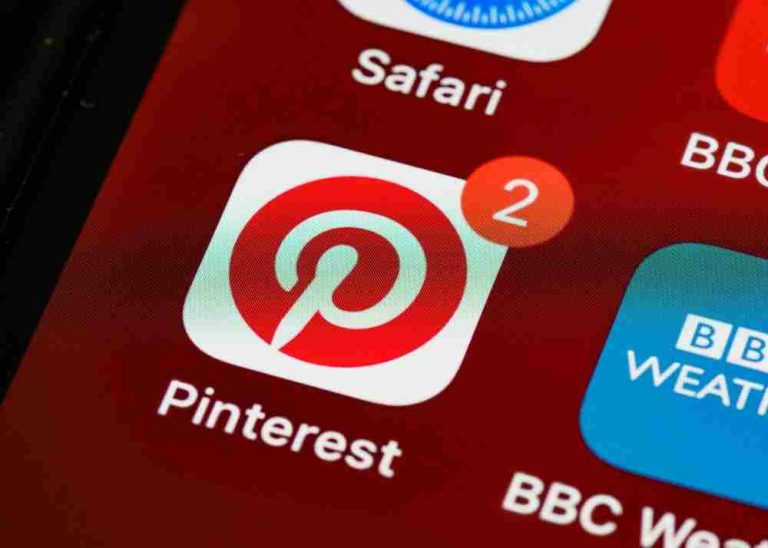We may receive a commission when you make a purchase from one of our links for products and services we recommend. As an Amazon Associate we earn from qualifying purchases. Thank you for support!
Need ideas for what to blog about on your writer’s blog? Here are 11 blogging ideas and topics for writers to attract more people to your blog while retaining your existing fan base.

1. How-to’s
One of the most effective ways to attract people to your blog is to post a how-to. There is always some new procedure or device to learn, and no shortage of people struggling to understand it. Going through a thick manual isn’t everyone’s idea of a good time, and a handy and convenient how-to guide is often a preferable option.
You actually have a pretty good chance of attracting a healthy readership considering that people nowadays are more likely to turn to Google for instructions. Given the popularity of sites such as WikiHow, you could conceivably build a substantial reader base by providing helpful how-to guides.
Example How-To Articles for Writers
As an author, there are many topics for how-to articles you can write. For example, you could write some of these as a jumping point:
- How to really read a good book
- How to organize your library
- How to keep track of books you’ve read
- How to do ______________ like _______________ {name of character in your book}
- How to DIY Your Own __________
As you can see, there is a lot of room for different types of how-to blog post ideas you can publish as a writer. Depending on what topics and genres you write in, you could make these articles non-fiction or related to being a great reader and fan of your work.
2. Travel

Travel is another great idea for what to blog about as a writer. Even with more and more opportunities for connectivity nowadays, people still enjoy traveling. If you are a blogger, the good news is that there is no shortage of people that are interested in learning more about it.
Of course, travel is a pretty broad niche, so you will have to narrow down your focus a bit.
If you are an author you may want to write about your different travel adventures to events like book signings, launch parties and more.
Sharing your latest vacation photos may seem cliche but it’s a way to help your readers connect to you as a writer and get to know you on a more personal level.
3. Product/service reviews

Product reviews are such a powerful topic for any blog or web page that it’s almost cheating to write and host them! But you might as well take advantage of their undeniable effectiveness and use this blogging idea for writers to your benefit!
Think about the types of products or services that appeal to your readers and write about them as honestly as you can. Many reviewers shy away from outright criticism of the products they review for fear of alienating manufacturers. Adopting a fair-but-brutally-honest approach could pay off in other ways and establish you and your site as trustworthy authorities in your niche.
Some of the things you could review as a writer:
- Your favorite notebooks and pens
- Your laptop
- Writing Software & Tools
- Related products to the topic/focus of your book
Again, the topics you write about and the niche or genre you write for will help dictate the types of blog articles you might want to write.
4. Political topics

Politics is a touchy subject, and it is totally understandable if you would rather steer clear of it. But the polarizing nature is precisely why you might want to consider writing about politics. Even with the potential for conflict and drama–or perhaps because of it–politics could cause your blog’s reader count to go through the roof.
Political sites become especially popular during election year. You don’t even necessarily have to take sides to benefit from this boost in popularity. Simply decide on a topic, initiate conversation, and get ready for the tidal wave of visitors to come crashing in.
Prefer to stay away from politics completely? There are still ways to garner controversy with your writing based on your topic. Perhaps you wish to debate the effectiveness of something, or take unique perspectives to something related to your blog topic.
Here are Some Example Controversy Blog Title Prompts:
- Who Would ____________{Character Name} Vote for This Election?
- Why I Don’t Believe in ___________ {topic or niche related to your book}
- Which is Better? ____________ vs. ___________
- How ____________{Character} compares to ____________ {Political Candidate}
All of these are the types of blog posts that get people talking and can bring significant traffic to your writer’s blog. When writing about politics or controversy, it’s important to think about your audience and what they will connect with you as a reader.
5. Beginner guides

Unlike how-to guides that focus on a specific procedure or process, beginner guides usually cover broader, more comprehensive disciplines. While a how-to guide could instruct readers on how to wall mount a TV, for example, a beginner’s guide could focus on how to start an interior design business.
Beginner’s guides are so popular as blogging ideas for writers because they break down the procedure to achieve certain goals in easily digestible chunks. They are also a great way to provide a broad overview of a particular subject and to reinforce your reputation as an authority in your niche.
Beginner guides are specifically great when you write non-fiction types of books, but they work well even for fictional writing as well.
Here are some examples of beginner guide blog topics for writers:
- The Ultimate Guide to Starting ________________ {Character, Setting, or Topic}
- The Beginner Guide to Understanding ______________ {Character, Setting, or Topic}
- Intro to _____________ 101
- Learn ______________ for Beginners
Whether you write fiction or non-fiction will make a big difference in the types of beginner guides you write, but there are plenty of options.
For fiction, you can always explore characters, settings, or even different conflicts which happen in the book. In non-fiction, you can make the blog post a condensed version of the topic you cover in your book.
When writing a blog post like this, don’t forget to add a call to action at the end for readers wanting to learn more to check out your latest book! The beginner just might become your next loyal fan and reader!
6. Expert guides

You could go a step further from offering a beginner’s guide by posting an expert’s guide. This takes the subject you covered in your beginner’s guide and goes in-depth into more advanced concepts and procedures. If the subject matter is something you are genuinely knowledgeable about, you could have enough material for a lengthy series of guides.
You don’t necessarily have to draw entirely from your own pool of knowledge either. Many of the most useful guides are based on extensive research, with data and information obtained from recognized authorities in the field. In fact, backing up your instructions with statistics and legitimate sources is a great way to enhance the reputability of your expert guide.
Many writers who publish non-fiction have benefited from including “Bonus Materials” on their websites for people who have read the book. This is one way to incorporate these blog posts for more in depth information. Of course, the reverse is always possible as well – if you’re discussing a highly complex topic and published a beginner book, those who are overwhelmed might find your beginner book to be a huge relief!
7. FAQs

If you aren’t quite ready to publish a full-blown guide yet want to share valuable information on your blog, consider publishing frequently asked questions (FAQs) instead.
The typical FAQ format provides answers to some of the most commonly asked questions about a particular product, process, or subject, presenting the answers in easily digestible chunks. This makes for quick reading and instant gratification, which often appeals to most demographics.
Keep in mind that FAQs are commonly included in Google’s algorithms as part of its Knowledge Graph. If you luck out and get your FAQ page listed on the graph, you could be rewarded with a boost in your visitor count.
Think about what questions someone might ask about your book. If writing fiction, people may ask questions about the character, the setting, or even some minor detail you might not think about. Your readers might be curious what your character reads or even eats for lunch and why. {Don’t know those answers yourself? Check out our post on 160 Character Development Questions for Inspiration!}
8. Interviews

People love learning from authority figures, and one of the best ways to get a more in-depth insight into the minds of experts is by reading an interview. If your site is one of those that happen to have talks with recognized experts in specific fields, you could expect to enjoy a healthy increase in your visitor count.
An interview with almost any industry expert is a potentially powerful attraction for your blog. Just make sure to prepare questions that your audience would be interested in, and you are practically assured of pulling in the numbers.
If you write fiction, biographies, or memoirs, you could also consider interviewing people from your life or even interviewing your readers and other bloggers.
9. Personal stories

Don’t discount the pulling power of personal stories. A compelling and well-written tale can draw in readers, and they could be valuable additions to your blog. Even if they aren’t necessarily packed with the keywords that you would generally need to attract organic traffic, they provide an equally valuable opportunity for engagement.
One of the most valuable aspects of personal stories is that they allow site visitors to relate to you and your brand on a more personal level. When you can draw them in with a story that they can relate to, you become much more than just an anonymous brand on a web page. You become a trustworthy figure that they can connect with on an emotional level, which could have significantly more long-term benefits than any SEO strategy.
In the book Nobody Cares What You Eat for Lunch: 100 Ideas for Your Blog there are many great topic ideas for what you could blog about on a personal level. Of course don’t forget to consider using our 365 Writing Prompts or 300 Writing Prompts for Kids as blogging inspiration!
10. Myth-busting

Debunking myths is a surprisingly popular niche, on TV as well as on the internet. If you have the dirt on some commonly held myths and misconceptions, you could have a potentially lucrative ‘hook’ for your blog.
Of course, you do have to make sure to post only information from verified–and verifiable–sources. Debunking myths with your own falsehoods could cause you to lose your audience quickly, not to mention possibly get you in legal trouble. But if you could bust some myths and keep your reputation intact, you could be onto something.
Some Example Myth Blog Prompts:
- 10 Myths About ____________________
- Why _____________ Isn’t True
- The Biggest Lies About __________________
- How We Got Confused About _______________
11. Productivity tips
Finally, consider offering tips, information, and advice on how to enhance and maintain productivity. Everyone is always looking for information on how to work smarter and more efficiently and boost productivity.
If you have a fertile source of information and could finesse your knowledge into a regular blog, you may have the makings of a productivity guru and have crowds of people beating a path to your virtual door.
Example Productivity Blog Post Ideas for Writers:
- 5 Ways to Have More Time to Read Your Favorite Books
- 3 Ways to Be More Like ________________ {Hero Name} and Get More Done
- How to Stay Productive and Read More Books
These are only a few ideas for topics that you could use as fodder for your author’s blog. There are many more subjects to consider, any of which could boost your visitor count significantly.
Do you have any suggestions for blog topics for authors and writers? Have you used any of these ideas for blog posts for writers on your blog? Share with us in the comments section below!





